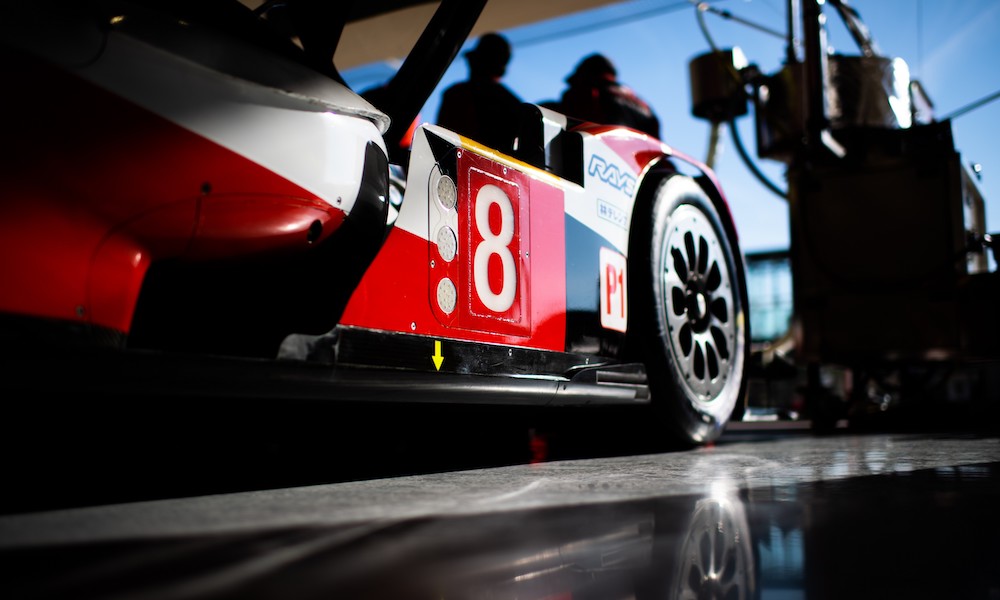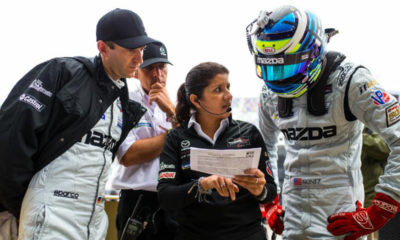
Photo: Jamey Price/Toyota
The six-month delay of the first race for the Le Mans Hypercar formula “supports the development” of Toyota’s new car, according to its team director Rob Leupen.
Last month the FIA World Endurance Championship announced that it would be reverting to a calendar year schedule for 2021 starting in March and ending in November, as part of the series’ response to the disruption caused by the coronavirus pandemic.
This then moved the planned debut of the new LMH class from this September to next March.
Toyota had been pressed for time on its LMH car development before the global health crisis hit, but recent events added further pressure on the manufacturer’s Cologne-based build team at TGR Europe (formerly TMG) to get the car ready in time.
Leupen told Sportscar365 before the WEC’s calendar change that the pandemic was having a “huge” impact on Toyota’s work because of lockdowns and parts supply delays.
But while those inhibiting factors have not fully receded, Leupen explained more recently that the delay of LMH’s debut to 2021 presents a more achievable target for Toyota.
Most significantly, it has enabled the Japanese manufacturer to push back its car’s proposed rollout date from July, for a September race debut, to October.
“[The LMH project] has been delayed because it gives us more time,” said Leupen.
“The season has been moved to next year, so it’s not where we have a higher pressure. We are more flexible and it reduces pressure on people in the organization.
“If we had kept the rollout date for July, we would have been on extremely high pressure for targets that we could not achieve, because the environment and the infrastructure are not available.
“The season has moved to next year so it could give our engineers a bit more time to study the regulations better, to go into a deeper development of the parts.
“In the end, it supports the development of the new car.”
WEC CEO Gerard Neveu recently said that he believes LMH manufacturers are “likely to benefit” from the series’ calendar switch away from the winter-season format.
The extended development period could afford time for constructors to prepare for the newly-announced power and weight reductions and to set their cars out on track.
When asked if it would be possible to conduct LMH testing between the planned October rollout and the March race debut, Leupen said, “I think we could”.
But he stressed that while some provisional test dates have been penciled in, everything depends on how the pandemic situation evolves over the next few months.
Toyota is rumored to have explored a testing scenario at Sebring at the end of this year, but this has not been confirmed by the team.
“It depends on the countermeasures as we unlock the coronavirus situation,” said Leupen.
“At present, we cannot test, but it should get better from the end of June to early July onwards.
“We have scheduled our required tests. Then we need to see how it goes with the overall situation. This is something that we need to react and adapt to quickly.
“We cannot confirm any tests overseas this year [for the hypercar]. At the present moment, it’s unlikely to happen.”
LMP1 Endurance Test “On the List” Ahead of 24H Le Mans
While the LMH testing program is uncertain, Toyota does have firmer intentions to conduct an endurance test with its TS050 Hybrid LMP1 car this year.
“We are looking for testing activities to prepare for Le Mans, especially after a time of no racing for so long,” said Leupen.
“We normally need to test to prepare for Le Mans, so we always schedule a test after Spa, around now. We will have to reschedule this because you always want to do an endurance test before you go to a 24-hour race, in preparation.
“It’s on the list, but we can’t confirm due to the coronavirus situation and how the calendar will develop.
“Will Le Mans take place on the weekend of September 19-20? It’s a question mark, but I hope so. And can Spa take place?
“It’s all a bit crystal ball at the moment. In a few weeks, things might be much clearer.”
























